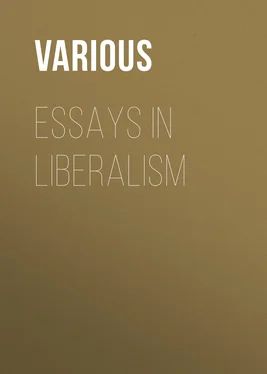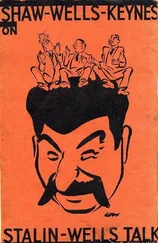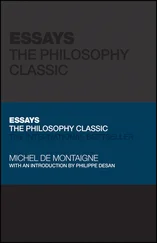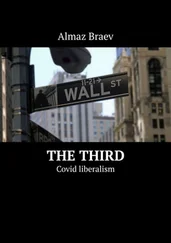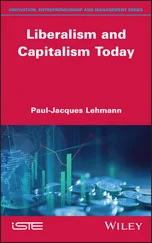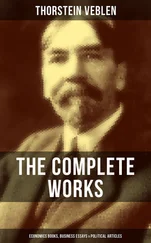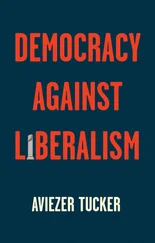Various - Essays in Liberalism
Здесь есть возможность читать онлайн «Various - Essays in Liberalism» — ознакомительный отрывок электронной книги совершенно бесплатно, а после прочтения отрывка купить полную версию. В некоторых случаях можно слушать аудио, скачать через торрент в формате fb2 и присутствует краткое содержание. Жанр: foreign_edu, Политика, на английском языке. Описание произведения, (предисловие) а так же отзывы посетителей доступны на портале библиотеки ЛибКат.
- Название:Essays in Liberalism
- Автор:
- Жанр:
- Год:неизвестен
- ISBN:нет данных
- Рейтинг книги:4 / 5. Голосов: 1
-
Избранное:Добавить в избранное
- Отзывы:
-
Ваша оценка:
- 80
- 1
- 2
- 3
- 4
- 5
Essays in Liberalism: краткое содержание, описание и аннотация
Предлагаем к чтению аннотацию, описание, краткое содержание или предисловие (зависит от того, что написал сам автор книги «Essays in Liberalism»). Если вы не нашли необходимую информацию о книге — напишите в комментариях, мы постараемся отыскать её.
Essays in Liberalism — читать онлайн ознакомительный отрывок
Ниже представлен текст книги, разбитый по страницам. Система сохранения места последней прочитанной страницы, позволяет с удобством читать онлайн бесплатно книгу «Essays in Liberalism», без необходимости каждый раз заново искать на чём Вы остановились. Поставьте закладку, и сможете в любой момент перейти на страницу, на которой закончили чтение.
Интервал:
Закладка:
I am not advocating the League of Nations except in the limited way of attempting to show that the Balance of Power is impossible as an alternative unless you can re-create the conditions of a century ago, restore the individual independence of a number of fairly equal Powers, and guarantee the commonwealth of nations against privy conspiracy and sedition in the form of separate groups and alliances. But there is one supreme advantage in a Community of Power, provided it remains a reality, and that is that it need never be used. Its mere existence would be sufficient to ensure the peace; for no rebel State would care to challenge the inevitable defeat and retribution which a Community of Power could inflict. It has even been urged, and I believe it myself, that Germany would never have invaded Belgium had she been sure that Great Britain, and still less had she thought that America, would intervene. It was the Balance of Power that provoked the war, and it was the absence of a Community of Power which made it possible.
Basis of Security
But no one who thinks that power—whether a Monopoly, a Balance, or even a Community of Power is the ultimate guardian angel of our peace, has the root of the matter in him. Men, said Burke, are not governed primarily by laws, still less by force; and behind all power stands opinion. To believe in public opinion rather than in might excludes the believer from the regular forces of militarism and condemns him as a visionary and blind. For advocates of the Balance of Power bear a striking resemblance to the Potsdam school; and even so moderate a German as the late Dr. Rathenau declared in his unregenerate days before the war that Germans were not in the habit of reckoning with public opinion. Nevertheless, there is a frontier in the world which for a century and more has enjoyed a security which all the armaments of Prussian militarism could not give the German Fatherland; and the absolute security of that frontier rests not upon a monopoly nor a community, still less upon a balance of power, but on the opinion held on both sides of that frontier that all power is irrational and futile as a guarantee of peace between civilised or Christian people.
Let us look at that frontier for a moment. It is in its way the most wonderful thing on earth, and it holds a light to lighten the nations and to guide our feet into the way of peace. It runs, of course, between the Dominion of Canada and the United States of America across the great lakes and three thousand miles of prairie; and from the military and strategic point of view it is probably the worst frontier in the world. Why then is it secure? Is it because of any monopoly or community or balance of power? Is it because the United States and the British Empire are under a common government, or because there is along that frontier a nicely-balanced distribution of military strength? No, it is secure, not in spite of the absence of force, but because of the absence of force; and if you want to destroy the peace of that frontier from end to end, all you need to do is to send a regiment to protect it, launch a Dreadnought on those lakes, and establish a balance of power. For every regiment or warship on one side will produce a regiment or warship on the other; and then your race for armaments will begin, and the poison will spread until the whole of America becomes like Europe, an armed camp of victims to the theory of strategic frontiers and of the Balance of Power.
Those theories, their application, and their consequences recently cost the world thirty million casualties and thousands of millions of pounds within a brief five years, and yet left the frontiers of Europe less secure than they were before. Three thousand miles of frontier in North America have in more than a hundred years cost us hardly a life, or a limb, or a penny. As we put those details side by side we realise quantula regitur mundus sapientia —with how little wisdom do men rule the world. Yet the truth was told us long ago that he that ruleth his spirit is better than he that taketh a city, and we might have learnt by our experience of the peace that the only conquest that really pays is the conquest of oneself.
The real peace of that North American frontier is due to no conquest of Americans by Canadians or of Canadians by Americans, but to their conquest of themselves and of that foolish pride of “heathen folk who put their trust in reeking tube and iron shard.” Let us face the facts, whatever the visionaries and the blind may say. So be it. The war is a fact, and so is the desolation it has wrought. But that Anglo-American frontier is also a fact, and so is that century of peace which happily followed upon the resolution to depend for the defence of that frontier on moral restraint instead of on military force. Verily, peace hath her victories not less renowned than those of war.
The Alternative
We have, indeed, to face the facts, and the facts about the Balance of Power must dominate our deliberations and determine the fate of our programmes. There may be no more war for a generation, but there can be no peace with a Balance of Power. There can be nothing better than an armed truce; and an armed truce, with super-dreadnoughts costing from four to eight times what they did before the war, is fatal to any programme of retrenchment and reform. We are weighted enough in all conscience with the debt of that war without the burden of preparation for another; and a Balance of Power involves a progressive increase in preparations for war.
Unless we can exorcise fear, we are doomed to repeat the sisyphean cycles of the past and painfully roll our programmes up the hill, only to see them dashed to the bottom, before we get to the top, by the catastrophe of war. Fear is fatal to freedom; it is fear which alone gives militarism its strength, compels nations to spend on armaments what they fain would devote to social reform, drives them into secret diplomacy and unnatural alliances, and leads them to deny their just liberties to subject populations. Fear is the root of reaction as faith is the parent of progress; and the incarnation of international fear is the Balance of Power.
INTERNATIONAL DISARMAMENT
By Major-General Sir Frederick Maurice, K.C.M.G., C.B
Director of Military Operations—Imperial General Staff, 1915-16.
Sir Frederick Maurice said:—This problem of the reduction of armaments is one of the most urgent of the international and national problems of the day. It is urgent in its economic aspect, urgent also as regards its relation to the future peace of the world. The urgency of its economic aspect was proclaimed two years ago at the Brussels conference of financiers assembled by the League of Nations. These experts said quite plainly and definitely that, so far as they could see, the salvation of Europe from bankruptcy depended upon the immediate diminution of the crushing burden of expenditure upon arms. That was two years ago. Linked up with this question is the whole question of the economic reconstruction of Europe. Linked up with it also is that deep and grave problem of reparations. It is no longer the case to-day, if it has ever been the case since the war, which I doubt, that sober opinion in France considers it necessary for France to have large military forces in order to protect her from German aggression in the near future. For the past two years, however, it has been the custom of those who live upon alarms to produce the German menace. There is a great body of opinion in France at this moment which feels that unless France is able to put the pistol to Germany’s head, it will never be able to get a penny out of Germany.
You have the further connection of the attitude of America to the problem. America said, officially through Mr. Hoover and unofficially through a number of her leading financiers, that she was not ready to come forward and take her share in the economic restoration of Europe so long as Europe is squandering its resources upon arms. The connection is quite definitely and explicitly recognised in the Covenant of the League of Nations. Article 8 begins: “The principles of the League recognise that the maintenance of peace requires reduction of national armaments to the lowest point consistent with national safety, and the enforcement by common action of international obligations.” These words were promulgated in 1919. Personally, I find myself in complete agreement with what Lord Robert Cecil said this morning, and what Lord Grey said a few days ago at Newcastle, that one of the prime causes of the war was Prussian militarism. By that I mean the influence of that tremendous military machine, which had been built up through years of labour in Germany, in moulding the public opinion of that country.
Читать дальшеИнтервал:
Закладка:
Похожие книги на «Essays in Liberalism»
Представляем Вашему вниманию похожие книги на «Essays in Liberalism» списком для выбора. Мы отобрали схожую по названию и смыслу литературу в надежде предоставить читателям больше вариантов отыскать новые, интересные, ещё непрочитанные произведения.
Обсуждение, отзывы о книге «Essays in Liberalism» и просто собственные мнения читателей. Оставьте ваши комментарии, напишите, что Вы думаете о произведении, его смысле или главных героях. Укажите что конкретно понравилось, а что нет, и почему Вы так считаете.
